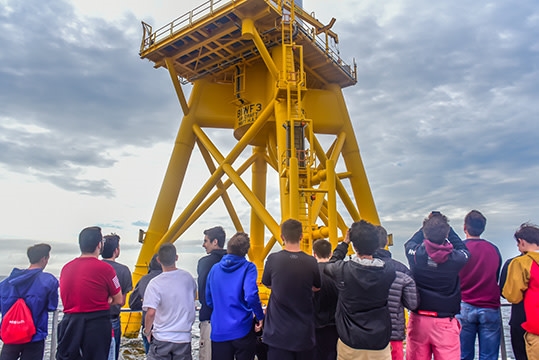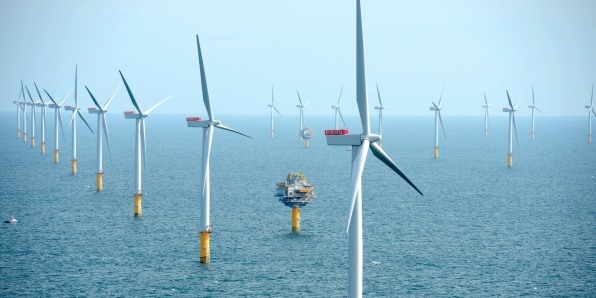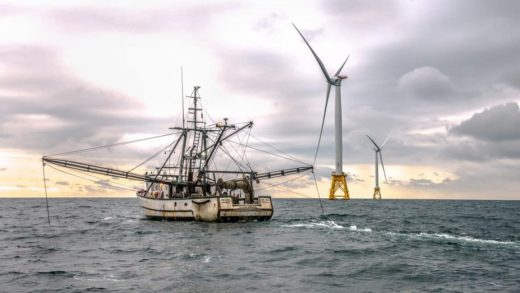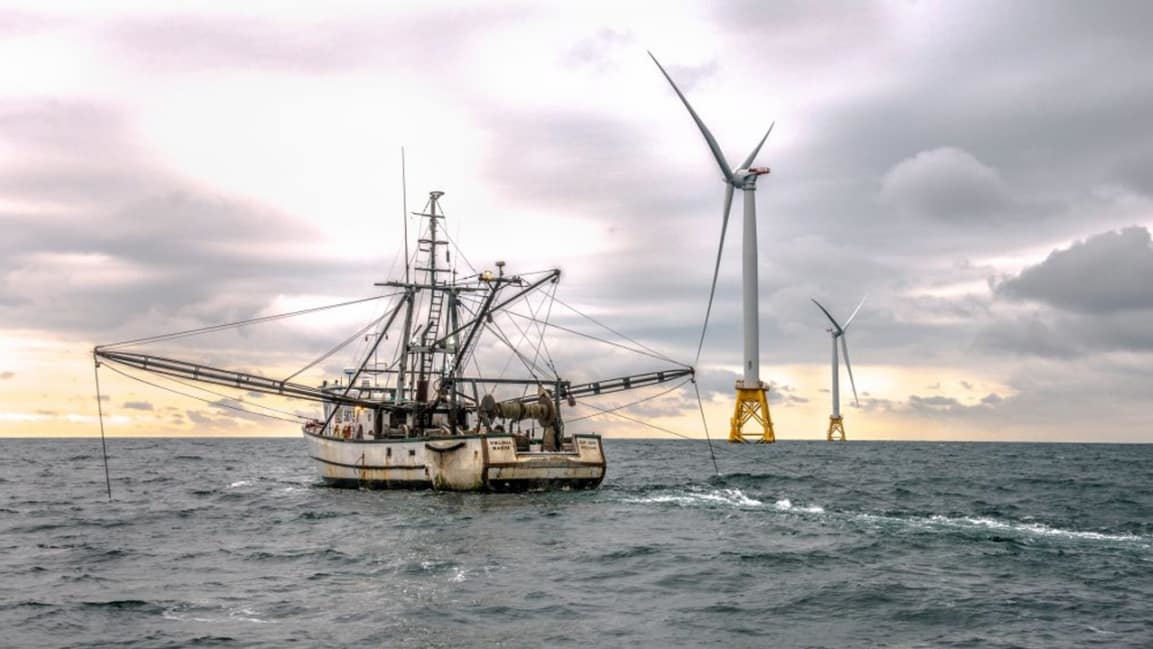The booming wind energy economy needs workers–this high school program trains them
When the Block Island Wind farm began operations off the coast of Rhode Island in 2016, the state officially became home to the country’s first offshore wind development.
Now that the Block Island farm been up and running for two years, Rhode Island is leading the way on another initiative: a training program for students interested in careers in the offshore wind industry. Called Wind Win Rhode Island, the program launched this fall with a small cohort at Rocky Hill School and North Kingstown High School, which both border Rhode Island’s coast.
Through Wind Win RI, which was developed in partnership with the North Kingstown Chamber of Commerce and the state’s labor and job training department, students learn the ins and outs of the offshore wind energy sector. They take courses on engineering, welding, electrical systems, and marine safety, and the program, says director Kristin Urbach, is designed to grant participants up to nine college credits. The governor’s office funded the pilot program with a $100,000 grant, and the first round of students will finish the program in 2020.

“Through talking with people in the industry, we learned that the skills that are most applicable to offshore wind–welding, electricity, fabrication–are held by an aging-out workforce,” Urbach says. In Rhode Island, the workforce is currently dominated by people ages 55 and older. As the state aims to build out even more offshore wind capacity following the success of the Block Island project, it can’t pin the success of future build-outs on an aging population. Earlier this year, for instance, Governor Gina Raimondo gave a green light to another offshore wind project in Rhode Island’s waters, which is expected to create 800 jobs. The state, Urbach says, should be looking to connect young people with these opportunities, which are only expected to grow.
“We’re closing the gap between what’s expected to be a huge area of growth in our economy, and the fact that the people who can do those jobs now are aging out of the workforce,” Urbach says. Raimondo has pledged to double the number of green jobs in the state by 2020, and make the state’s energy sources 10 times cleaner, which the development of more offshore wind projects will certainly help to do. But the Wind Win RI program is intended to ensure that those jobs can be filled by young people who live in the state.

Because the Wind Win RI program tackles both the need for jobs (particularly for young people) and the urgency of shifting to green energy, it mirrors a larger proposal on the national scale: the Green New Deal. Championed by representative-elect Alexandria Ocasio-Cortez from New York, the Green New Deal aims to address climate change by building out jobs in the green energy sector, and speeding the transition to 100% renewable energy in a way that strengthens the economy. The idea is gaining momentum, and the program in Rhode Island could perhaps be seen as a pilot program for the larger proposal.
In Rhode Island, though, Wind Win RI’s organizers are focusing on making the program a success for the students participating. “What the certification consists of is developing skill sets and exposure to the offshore wind industry for students,” Urbach says. They take field trips out to Block Island and to the University of Rhode Island’s wind energy research center, where they learn about the process of securing approval and developing Block Island. The students also get training from the Coast Guard to operate boats needed to transport people out to do work on the offshore turbines. Their goal is that students who complete the certificate program can use it to direct their college education, or go straight into the workforce. Eventually, the program directors hope to source enough funding to expand to more schools in the next several years.
(15)



